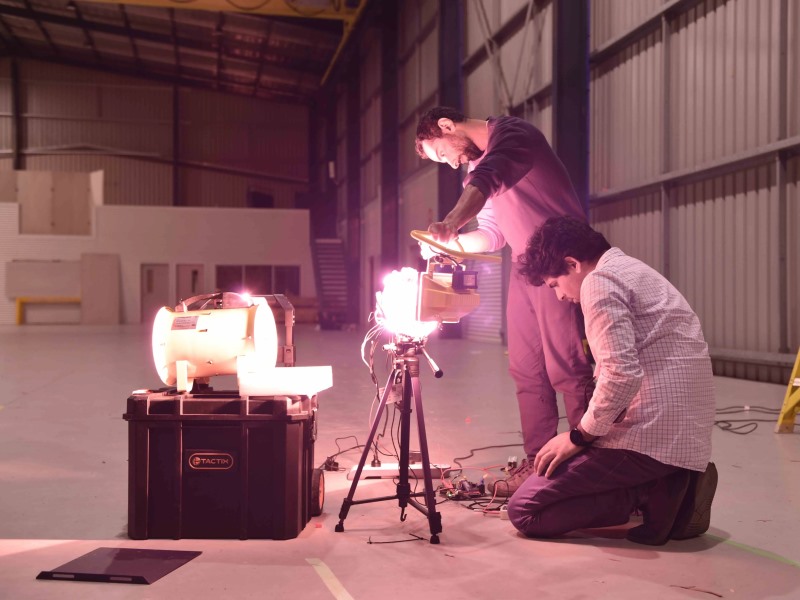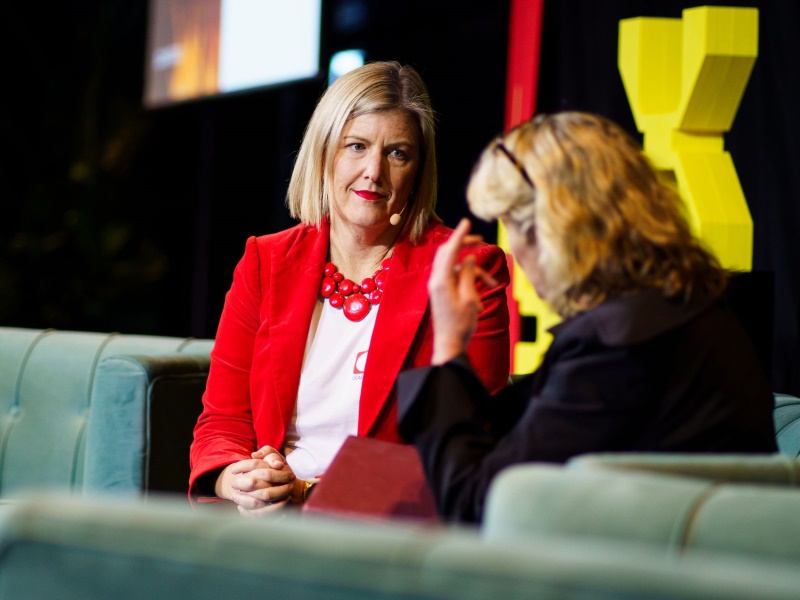Australian innovation will disrupt global energy, health, water and chemicals industries if startups, investors, industry and governments can come together in a systems model, according to local deep tech founders and incubators.
The message was driven home at Australia’s oldest and biggest deep tech festival in Sydney on Wednesday as companies vied for the connections that helped previous Tech23 participants go on to raise $7.5 billion and tap into global markets.
On show at Tech23 this year is technology like wireless energy, mystified drug therapies, cow breath tests, lab grown meat and dairy platforms, sustainable buildings and robots that help workers not replace them.

The 14th year of the event comes amid an “Australian deep tech revolution” and a growing acceptance of the need for a systems approach to take advantage, according to Sally-Ann Williams, chief executive of deep tech incubator and Tech23 organiser Cicada Innovations.
“We’re seeing an inflection point in the types of business that we need to exist in the world to solve the fundamental challenge that we’re facing for people and planet… We can’t solve these problems that we are facing around health and food and climate with simple solutions.”
Even challenges that appear to have relatively simple responses like increasing renewable energy or reducing food waste still need complex solutions because of system factors like culture, markets, regulations and policy.
“The deployment can be really challenging,” Ms Williams said. “So we do need to really re-think, what are we doing and how do we build businesses and what does that take.
“It’s no longer doing it on your own.”
Aquila, a Sydney startup that can recharge electric drones mid-flight, said its technology is world beating. But to truly benefit Australia it need to overcome barriers like aging energy infrastructure, regulations and a lack of highly skilled workers.
“What our technology allows us to do is actually transmit electricity wirelessly and dynamically over extended distances,” Aquila’s head of operations Ruby Jones told the event.
“So it completely unlocks the energy transmission system that we have today… It’s not something that other people are doing… It gives us the opportunity to kind of go from dial up internet into Wi-Fi in that same transition that we’ve seen with internet but on an on an energy scale.”
It opens up possibilities for exporting zero cost energy generated in Australia around the world, Ms Jones said, but finding the technical expertise and local infrastructure to develop it is a barrier.
“The reality [is] that it is sometimes very hard to find the right people for very highly technical and innovative roles,” Ms Jones said. “Because there’s only so many Sydney, let alone Australia, let alone the world, that is able to fulfill the kind of roles that we’re looking for — very specific technical niches. That is where we have trouble.”
Dr Bryn Sobott is also confident in his technology but needs the support of industry partners to demonstrate its value. His startup Adept Aqua’s technology is at the nexus of water and energy and was driven by a moral duty to actively address the climate crisis.
Adept Aqua has developed a new low lost, low energy way of removing pollutants from marine environments and injecting them with oxygen.
“We do that because aquaculture is the fastest growing primary industry in the world, and the speed of fish growing depends on how much oxygen is in the water… We want to capture evidence about our value add, so we’re looking for partners to do that,” Dr Sobott said.

Lucie Semenec said her sustainable textile startup newera.bio can come up with the production materials and techniques to make textiles almost completely sustainable and a far cry from the 95 per cent of current dyes derived from fossil fuels.
But in a systems model it needs governments to help drive the transition, calling for a tax on petroleum-based products like those dominating the current market.
“We can buy a $5 shirt and we don’t even know the social and environmental implications of this. We’re paying a lower price now but the environmental and social costs are massive,” she said.
“I think if we put a tax on these petroleum based products that would really level the playing field and allow for innovators to come up with more sustainable solutions.”
Agscent’s systems need is local investors to come to the table and keep the deep tech onshore.
“We need investment,” founder of the Dr Bronwyn Darlington told Tech23.
The NSW AgTech has developed technology that can determine if a cow is pregnant with a hand held breath testing device. The device opens up huge global markets and additional applications like disease testing in other animals and humans. The local founder wants to set up production in Australia but faces the pull of American investors.
“We are under huge pressure to flip up to the US,” she said. “We have a deal on the table now to take us to scale manufacturing [and] to launch in the US and Australia at the end of the year. We need to be able to manufacture here in Australia and in the US, and we need your support.”
Do you know more? Contact James Riley via Email.

